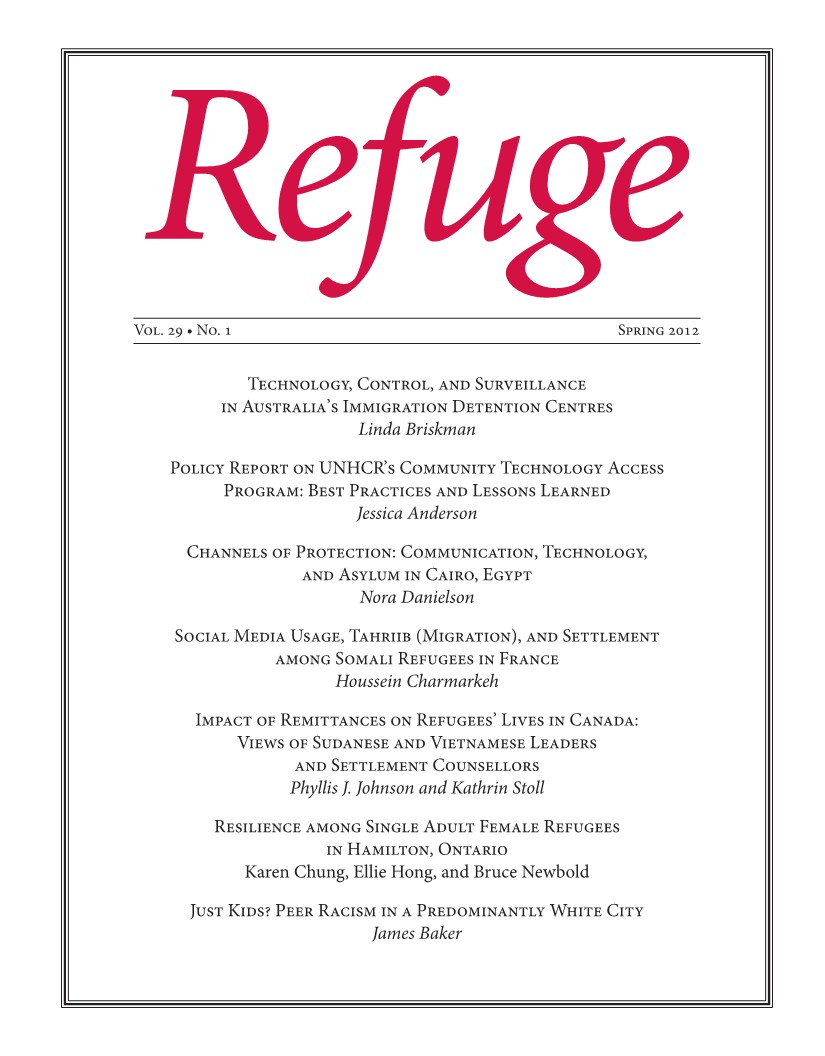“Migration and Violence: Lessons from Colombia for the Americas” A Workshop of the Transatlantic Forum on Migration and Integration and the Refugee Research Network (TFMI)
DOI:
https://doi.org/10.25071/1920-7336.37512Keywords:
Transatlantic Forum on Migration and Integration, TFMI, Refugee Research Network, Colombia, Mexico, Central America, migration policy, forced migration, internal displacement, refugees, violenceAbstract
The conference, “Migration and Violence: Lessons from Colombia to the Americas” was held in Bogotá D.C., Colombia at the Pontificia Universidad Javeriana on June 29, 2012. The main objective of the conference was to develop interdisciplinary academic research in Central America and Mexico regarding the relationship between violence, particularly narco-violence, and migration. The setting in Bogotá D.C. was deliberate as the participants discussed how lessons learned from Colombia’s experience with narco-induced migration could be leveraged for the benefit of Central America and Mexico. With the participation of experts on international migration, government representatives, academics, and civil society, the conference highlighted research results and relevant intervention experience concerning this problem in Colombia, El Salvador, Guatemala, and Mexico.
This article presents an analysis of the presentations given and the discussions held at the conference. It consists of four parts. The first section compares the similarities and differences regarding migration and violence in Colombia and El Salvador, Guatemala, and Mexico. The second section presents the major epistemological challenges emerging from research and models of intervention. The third section presents the implications of the epistemological challenges and their impact on public policy. The fourth section concludes with principal lessons from Colombia for research and intervention in the problem of violence and migration.
Metrics
Downloads
Published
How to Cite
Issue
Section
License
Copyright (c) 2013 Jorge Salcedo

This work is licensed under a Creative Commons Attribution-NonCommercial 4.0 International License.
Refuge authors retain the copyright over their work, and license it to the general public under the Creative Commons Attribution-Non Commercial License International (CC BY-NC 4.0). This license allows for non-commercial use, reproduction and adaption of the material in any medium or format, with proper attribution. For general information on Creative Commons licences, visit the Creative Commons site. For the CC BY-NC 4.0 license, review the human readable summary.







